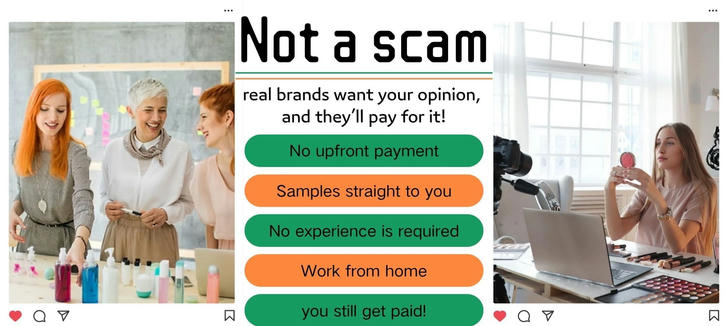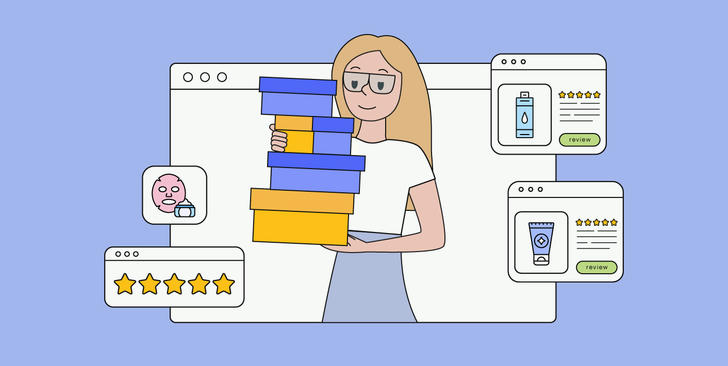Get Paid Just for Trying New Products – No Experience Needed!
Do you want to become a product tester? It’s a great gig. You can work from home, get paid, and offer feedback on products so companies can make changes and improvements. Not only will you be first in the know on what major manufacturers are working on, you’ll also have influenced the product’s design. You won’t need to prepay for the product during the test period, nor will you need to return the product after testing.

How to Get Paid to Test Products at Home in South Africa
Product testing is becoming an increasingly popular way to earn extra income from home in South Africa. Brands and manufacturers are always looking for genuine feedback from real consumers to help refine and improve their products. As a product tester, you can get paid to try out new products and provide your thoughts on them, helping companies enhance their offerings before they hit the market.
This process not only benefits companies but also rewards testers with monetary compensation, loyalty bonuses, gift cards, or vouchers. Depending on the product category and the length of the test, the rewards can range from small incentives to more substantial payments for in-depth testing.
Typical forms of payment for product testing include:
Direct bank transfers
PayPal or other digital wallet options
Retail vouchers for popular stores in South Africa
Product bonuses in addition to payment
One of the main benefits of product testing is that it’s done remotely, allowing it to fit into your schedule whether you're working full-time or studying. The flexibility makes it a great opportunity for many people in South Africa.
How Much Do Product Testers Get Paid in South Africa?
Product testers in South Africa can expect varying levels of compensation depending on the product category and the brand. Below is an average pay breakdown for some popular product categories:
| Category | Typical Pay Range (per product/test cycle) |
|---|---|
| Beauty Products | ZAR 150 – ZAR 500 |
| Fast-Moving Consumer Goods (FMCG) | ZAR 100 – ZAR 400 |
| Hair Care Products | ZAR 150 – ZAR 450 |
Higher-end testing assignments, such as those involving premium beauty products or in-depth hair care trials, can pay more, especially if the feedback requires detailed reports or follow-up surveys.
It’s important to note that consistent testers who offer detailed, honest, and timely feedback are often selected for higher-paying opportunities over time.

How Do You Become a Product Tester from Home in South Africa?
Becoming a product tester in South Africa is a straightforward process. You don’t need professional experience or formal training, but there are a few key steps you’ll need to follow:
Create a Testing Profile
The first step is to create a profile with all your relevant information. This includes details like age, gender, household size, skincare or hair care preferences, and whether or not you have a preference for eco-friendly or natural products. This information helps brands match you with the most suitable products for testing.
Pass Screening Surveys
Most programs will require you to answer a short screening questionnaire. This helps brands verify that you fit the right demographic for the product being tested. Be honest with your answers to ensure that you're selected for tests that are most relevant to your profile.
Accept the Test Assignment
Once selected, you’ll receive the product at your home, along with clear instructions on how to use it and what feedback is required.
Submit Your Feedback
After using the product for a certain period, you’ll be asked to complete a feedback form. This could involve a simple rating, a detailed written review, or a series of survey questions depending on the brand.
Receive Compensation
After submitting your feedback, the compensation will usually be processed. This could include payment, vouchers.
Many testers manage multiple assignments at once, increasing their chances of earning more.
Who Is Product Testing Suitable For in South Africa?
Product testing is a great opportunity for a wide range of South African residents. It’s especially appealing to:
Stay-at-home parents who are looking for flexible work from home.
Students in need of a part-time income that fits around their schedule.
Working professionals who are passionate about beauty, consumer products, or hair care.
Adults (aged 18-65) who enjoy trying out new products and providing feedback.
Eco-conscious individuals who care about sustainable and natural products.
People with niche preferences, such as those with sensitive skin or specific hair care needs, who are often in high demand for testing specific products.
Product testing is an accessible and flexible income opportunity for many different people, regardless of age or professional background.
What Do Product Testers Do?
Testers have specific duties when participating in a product test. Their role is to evaluate the product just as an everyday consumer would, but with a focus on detail. Key responsibilities of product testers include:
Following the instructions: Each product comes with instructions on how to use it. Testers must follow these guidelines carefully to ensure they are providing accurate feedback.
Testing the product under real conditions: For beauty products, testers will typically apply makeup or skincare as part of their daily routine. For hair care products, testers will incorporate the products into their hair care regimen. The goal is to evaluate the product in real-life settings.
Evaluating product features: Testers need to assess key product attributes like effectiveness, ease of use, scent, and packaging.
Completing feedback forms: After the trial period, testers are expected to complete a feedback form. This could range from a simple star rating to a detailed written review or an extensive survey, depending on the brand’s requirements.
Participating in follow-up surveys: Some brands may invite testers to participate in follow-up surveys or video calls to offer additional insights.
High-quality, timely, and honest feedback will likely result in testers being invited back for more assignments.

What Are the Popular Testing Products in South Africa?
In South Africa, the demand for product testers is growing, particularly in the following categories:
💄 Beauty Products
Beauty products such as foundations, lipsticks, eye creams, and mascaras are commonly tested. South African testers are highly valued for providing insights on how beauty products perform in different climates and on various skin types.
🍏 Fast-Moving Consumer Goods (FMCG)
South Africa’s market also sees high demand for testers of everyday products like snacks, beverages, and household items. Brands seek feedback on taste, effectiveness, and overall performance in daily life.
💇♀️ Hair Care Products
Shampoos, conditioners, hair serums, and styling products are regularly tested in South Africa. Testers are asked to evaluate how well these products perform on different hair types and whether they meet expectations in terms of texture, shine, and manageability.
Conclusion
Product testing in South Africa offers a flexible and rewarding way to earn extra income from home. It allows you to try out and influence products in high-demand categories such as beauty, fast-moving consumer goods, and hair care products.
By providing consistent, detailed, and honest feedback, you can unlock more lucrative opportunities over time.
👉 Now is the time to get involved and help shape the future of products—while earning compensation for your opinions.
